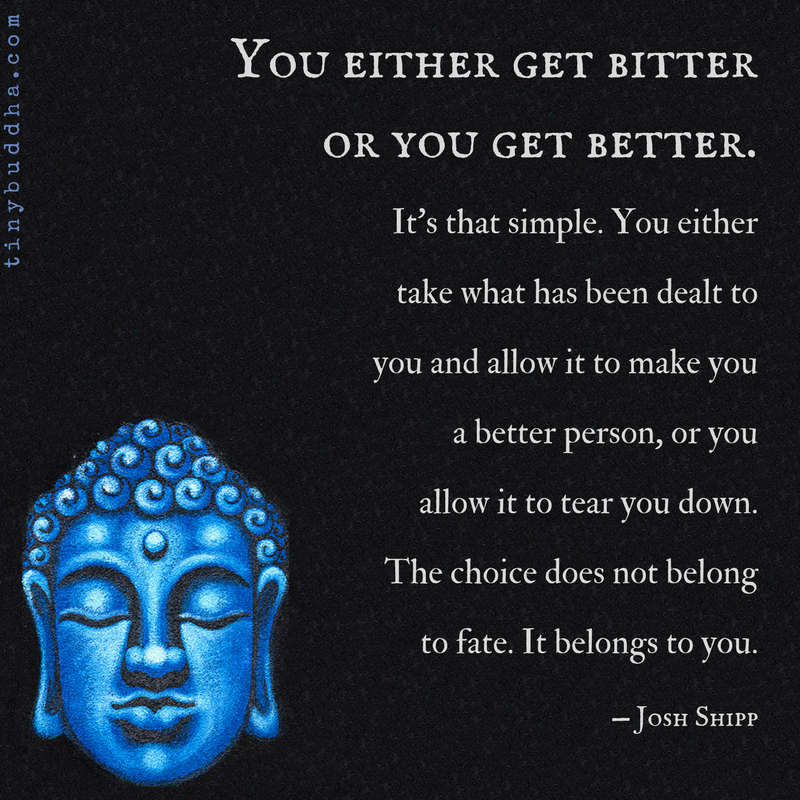The Resilience Mindset: From Bitter To Better Mental Health

Table of Contents
Understanding the Resilience Mindset
A resilience mindset is more than simply bouncing back from adversity; it's a proactive approach to navigating life's challenges. It encompasses a collection of attitudes, behaviors, and coping strategies that allow you to adapt and thrive even in the face of significant setbacks. The key difference between resilience and merely coping is the proactive nature of resilience. Coping might involve simply enduring hardship, whereas resilience actively involves learning, growing, and emerging stronger from the experience. Core components of a resilience mindset include:
- The ability to bounce back from setbacks: Resilient individuals don't dwell on failures; they analyze them, learn from them, and move forward.
- Adaptability to changing circumstances: Life is unpredictable. A resilient mindset allows you to adjust to new situations and find creative solutions to problems.
- Maintaining a positive outlook despite challenges: This doesn't mean ignoring negative emotions; it's about choosing to focus on hope and possibility even when things are tough.
- Learning from mistakes and failures: Resilient individuals view setbacks as opportunities for growth and self-improvement. They embrace their failures as valuable learning experiences.
- Seeking support when needed: Recognizing that you don't have to go it alone is a crucial aspect of building resilience. Knowing when to ask for help is a sign of strength, not weakness.
Identifying Your Triggers and Coping Mechanisms
Self-awareness is the cornerstone of building resilience. Understanding your personal stressors and negative thought patterns is the first step towards managing them effectively. Take the time to identify what situations, people, or thoughts tend to trigger negative emotions or overwhelming stress. Consider these steps:
- Journaling to track emotions and triggers: Regularly writing down your thoughts and feelings can help you identify patterns and understand your emotional responses to different situations. Note what triggers negative emotions and how you typically respond.
- Identifying unhelpful coping mechanisms: Many people develop coping strategies to manage stress, but some can be detrimental in the long run. Recognize if you rely on unhealthy coping mechanisms such as substance abuse, avoidance, or excessive social media use.
- Recognizing early warning signs of stress and burnout: Learning to recognize the early signs of stress—irritability, sleep disturbances, difficulty concentrating—is crucial for preventing burnout.
- Developing healthier coping strategies: Replace unhelpful coping mechanisms with healthier ones like regular exercise, mindfulness practices, spending time in nature, connecting with loved ones, or pursuing hobbies.
Cultivating Positive Self-Talk and Self-Compassion
Negative self-talk significantly impacts mental health and resilience. Constantly criticizing yourself creates a self-fulfilling prophecy of failure. Challenge these negative thoughts and replace them with positive affirmations. This takes practice, but the rewards are significant.
- Practicing self-compassion and forgiveness: Be kind to yourself. Treat yourself with the same understanding and compassion you would offer a friend struggling with similar challenges.
- Focusing on strengths and accomplishments: Make a list of your strengths and past achievements. Refer to it when you're feeling down to remind yourself of your capabilities.
- Reframing negative thoughts into more positive perspectives: Challenge negative thoughts by asking yourself if they are truly accurate and helpful. Try to reframe them in a more constructive and balanced way.
- Using positive self-talk affirmations daily: Start and end each day by repeating positive affirmations that reinforce your self-worth and resilience.
Building a Strong Support System
Social connection is vital for building resilience. Having a strong support network of friends, family, and mentors provides emotional support, practical assistance, and a sense of belonging.
- Identifying trusted friends, family, and mentors: Reach out to people you trust and who offer you unconditional support.
- Joining support groups or online communities: Connecting with others who share similar experiences can provide valuable support and validation.
- Seeking professional help from therapists or counselors: Therapy can provide valuable tools and strategies for building resilience and managing mental health challenges.
- Communicating needs and boundaries effectively: Learn to communicate your needs and set healthy boundaries to protect your well-being.
Practicing Mindfulness and Self-Care
Mindfulness practices are incredibly effective for stress reduction and emotional regulation. Self-care isn't selfish; it's essential for maintaining your mental and physical well-being.
- Mindfulness meditation and deep breathing exercises: Regular practice can help you become more aware of your thoughts and feelings without judgment.
- Regular exercise and healthy eating habits: Physical activity and a healthy diet are crucial for both physical and mental health.
- Prioritizing sufficient sleep and rest: Adequate sleep is essential for emotional regulation and cognitive function.
- Engaging in hobbies and activities that bring joy: Make time for activities that you enjoy and that help you relax and recharge.
Conclusion
Developing a resilience mindset is a journey, not a destination. By understanding your triggers, cultivating positive self-talk, building a strong support system, and practicing self-care, you can transform your response to adversity. Remember, shifting from a bitter to a better mental state is achievable with conscious effort and the right tools. Start building your resilience mindset today – your future self will thank you for it. Learn more about strengthening your resilience mindset and achieving better mental health through [link to relevant resources, e.g., a blog, course, or therapist directory].

Featured Posts
-
 Gretzkys Loyalty Examining The Legacy Amid Trump Ties
May 20, 2025
Gretzkys Loyalty Examining The Legacy Amid Trump Ties
May 20, 2025 -
 Dusan Tadic Transferi Fenerbahce Icin Tarihi Bir An
May 20, 2025
Dusan Tadic Transferi Fenerbahce Icin Tarihi Bir An
May 20, 2025 -
 Aghatha Krysty Fy Esr Aldhkae Alastnaey Mstqbl Alktabt Albwlysyt
May 20, 2025
Aghatha Krysty Fy Esr Aldhkae Alastnaey Mstqbl Alktabt Albwlysyt
May 20, 2025 -
 Chivas Regals Strategic Alliance With Charles Leclerc Boosting Brand Image
May 20, 2025
Chivas Regals Strategic Alliance With Charles Leclerc Boosting Brand Image
May 20, 2025 -
 Huuhkajat Kaksikko Kaellman Ja Hoskonen Palaavat Kotiin
May 20, 2025
Huuhkajat Kaksikko Kaellman Ja Hoskonen Palaavat Kotiin
May 20, 2025
